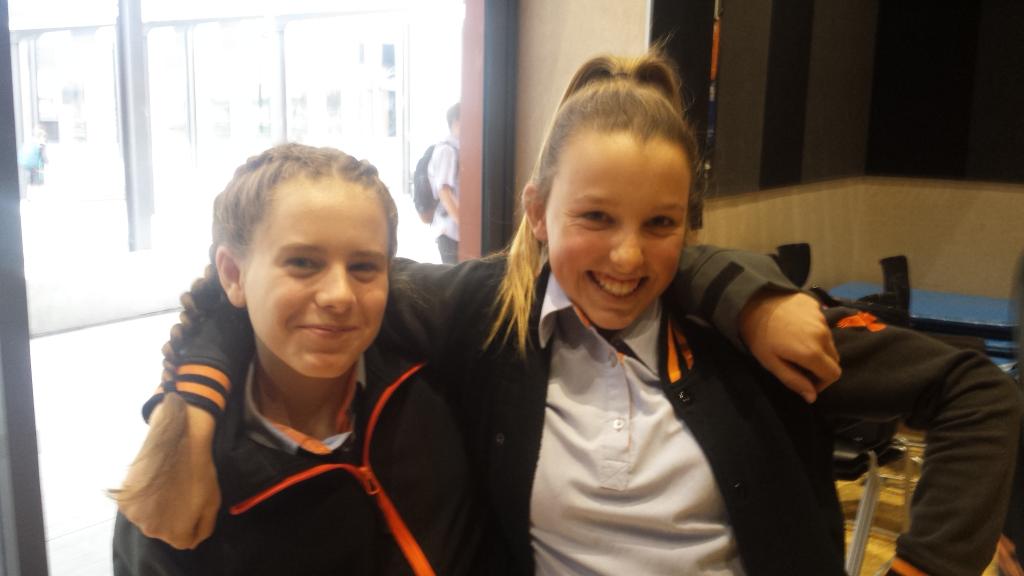The big theme of the conference was Possibilities. What can we do to change the world, change education and change ourselves. We spent a lot of the time working within our tribes to come up a plan of action that we can take with us to help encourage change.
My tribe was Kotuku and included some people I knew (from twitter and some unconferences) as well as some new people. As one would expect from any of the tribes at the conference, it was an awesome group. We had many discussions and came up with a simple plan: encouraging minute changes. The idea is simple: none of us have gotten where we are by changing everything in an instant. We took small changes, day by day and the cumulative effect has been massive. To outsiders it seems like too big a change to make in one go, so they don't feel comfortable making it.
Our vision is that no two teachers will end up going down the same path (similar to the ideas expressed in Punk Learning by Tait Coles), but that we should all adopt the same guiding principle of changing in baby steps, which is essentially the same idea as growth mindset. We've even set up a twitter hashtag (#WIDD - what I did differently) and a twitter account (@minutechange) to help us continue doing this.
There were also some sessions to attend at the conference. The first one was a rundown of how Rototuna School oraganizes everything. It was quite interesting to see how they have two areas in all of their modules and the variety of modules the students have to choose from. One of my favourites was "Science and Superheroes." Students have three modules each term - one of which must include literacy, one that must include numeracy and another that includes neither. They also get three times during the week where they can choose from a wide selection of Flight Times, subjects or topics that have been suggested by students or teachers. We then had a tour of the school (while the students were present) led by two current students. Hearing the perspective of the students was extremely helpful. Both said that they would never want to go back to the old way. Both spoke at lengths of the better relationships they have with their teachers. The told me that the teachers were like their friends, before quickly correcting themselves and saying it wasn't quite a friend. They said they were much kinder and that they were more like your coach. Though every school like this (ILE) will have a different set of specifics, I feel that the guiding principles are quite similar and it was extremely beneficial to see it in action.
 |
| My Awesome Tour Guides |
Here's a video of my creation. We had to make something that would keep the ball moving for as long as possible.
The second day of the conference began (after we shared our possibilities pitch) with my presentation. I was sharing ways in which coding (or, more specifically, Scratch) could be used throughout the curriculum. I had previously shared this idea at two educamps, so I had had some experience in what worked and what didn't. I tried to make my presentation less about me talking (because really, who wants to hear me talk for over an hour?) and more about people getting a chance to do something. So I just introduced Scratch and gave my attendees (all 9 of them!) some challenges to complete. With such a small group I was able to have lots of conversations and support a very diverse group of people - a couple of them had a lot of coding experience, while some had never coded before. It was a great session, I thought. I think in the future, I will always need to make sure to have my presentations as active, instead of passive.
My last session was with Andy Crowe who was sharing some things we can do as a Lone Nut in his Lone Nut Toolkit. He shared lots of design thinking and lean startup ideas and we worked through the Squid chart, which helps us get to the real questions we should be trying to fix in a problem. It was an interesting session, to say the least. I'm personally not someone who sits down and maps things out in charts. I just tend to do stuff, which can be problematic for me at times. So now I have a way of being "accountable" (in quotes because I think it's a dirty word) and mapping out my thinking when I do something different.
Like all of the PD that I've been to recently, this one was most valuable for the connections. What people said wasn't necessarily valuable (though, much of it was), but just making those connections and finding others in my tribe is what makes all the time and effort worth it. I no longer feel like that lone nut. I am definitely looking forward to spending more time (online, but preferrably face to face) with my newfound tribe!

No comments:
Post a Comment